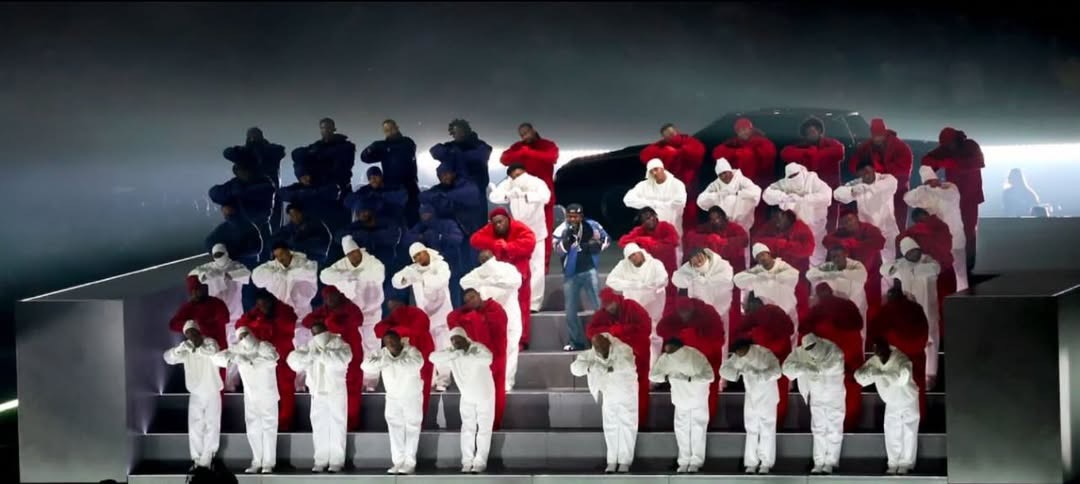Storytelling is not just about words—it’s about perspective, culture, and lived experience. The way we see the world is shaped by where we come from, what we’ve been through, and the stories that raised us. That’s why some narratives hit deep for some folks and fly right over the heads of others.
Let’s take Kendrick Lamar’s Super Bowl halftime show, for example. If you were tapped into the culture, you understood exactly what was going on. Every move, every lyric, and even the way he commanded that stage was a reflection of something bigger. But for some, the performance might have seemed confusing, underwhelming, or even out of place. That disconnect? It all comes down to perspective.
The Power of Perspective in Storytelling
Perspective is what makes storytelling rich, valuable, and relatable. It’s what allows artists, writers, and creators to bring their realities to life in ways that resonate with the people who share similar experiences. Kendrick Lamar isn’t just a rapper—he’s a griot, a modern-day storyteller who weaves the complexities of Black life into his music. His stories are layered, often blending themes of systemic oppression, spirituality, and resilience, resistance, and if you’re not familiar with those layers, you might miss the message.
The same goes for any form of storytelling. If you haven’t walked in someone’s shoes or at least made the effort to understand their world, their narrative may not land the same way for you. That doesn’t make the story any less powerful—it just means your perspective hasn’t been shaped by that reality. And you don’t have to have gone through the same experience, but you have to be a human with empathy to at least try to understand other people’s human conditions.
Lived Experience Brings Authenticity
Lived experience is what gives a story its soul. It’s the difference between someone telling you about struggle versus someone who’s lived through it, survived it, and can articulate it in a way that makes you feel it. Kendrick’s music is deeply rooted in the experience of growing up in Compton, in California, navigating systemic racism, and wrestling with faith, fame, struggle, and identity. His performance wasn’t just about putting on a show—it was a statement.
But if you don’t come from that world or haven’t engaged with the culture, the deeper meanings might go over your head. You do not have to be from the culture, but making an effort to understand the culture would make even the smallest difference in how you perceive the messages. However, never taking an interest in other peoples’ culture or experience is very telling. You may not care one bit about anything outside of your own culture and experiences. And that’s okay—it’s not about blame, but about awareness. This is why diverse storytelling matters. It allows us to see beyond our own realities and understand the perspectives of others.
Why Some People Didn’t Get Kendrick’s Performance
So why did some people miss the significance of Kendrick’s Super Bowl performance? Because it wasn’t designed for mass appeal—it was for the culture. It was for the people who understood the coded language in his lyrics, the symbolism in his movements, and the weight of what it meant for a conscious rapper to be on one of the world’s biggest stages.
When storytelling is authentic, it doesn’t always cater to the mainstream. Instead, it stays true to the experiences it represents, forcing audiences to either engage with it on a deeper level or accept that it wasn’t meant for them. And that’s the beauty of it. Let’s be clear, African Americans have been force-fed white culture most of their life. It is in every aspect of our daily lives. It is in leadership, government, classrooms, media… everywhere. However, the African American culture or any culture other than your own and the experiences that come with it is something that may not be understood unless there is an effort made to understand. And if you don’t want to understand, that’s fine too. It won’t stop the storytelling. The stories are our history, American history.
Let’s Keep the Conversation Going
Perspective and lived experience shape how we interpret stories, whether in music, media, or real life. If you’re looking to tap into authentic storytelling and connect with narratives that truly matter, let’s talk. Sand & Shores is all about amplifying voices and stories that need to be heard. Hit us up and let’s build your legacy.

Follow Sand & Shores on Facebook, Threads, and Instagram.
For media inquiries or if you would like more information about this topic, please contact Tonya McKenzie at tmckenzie@seashell-giraffe-968595.hostingersite.com | Threads: @TonyaMcKenziePR | Instagram: @TonyaMcKenziePR

